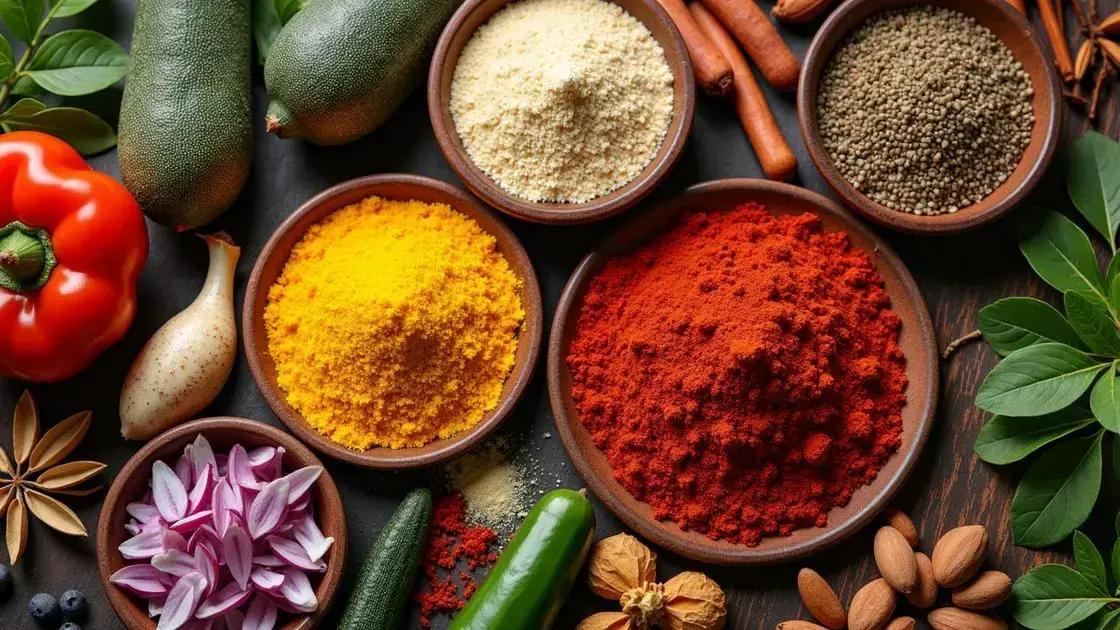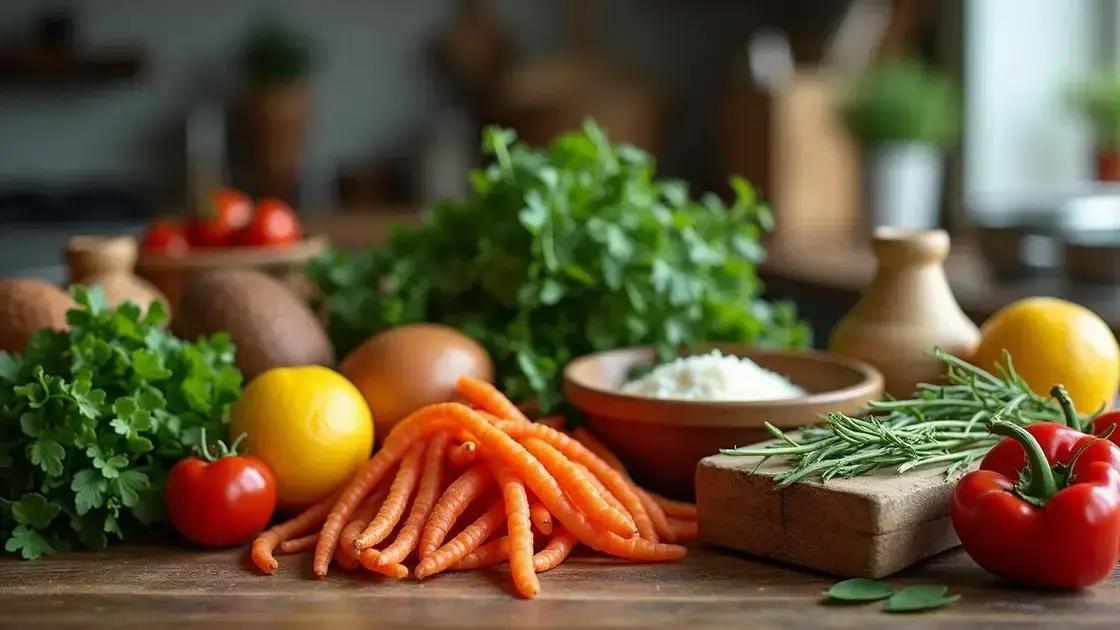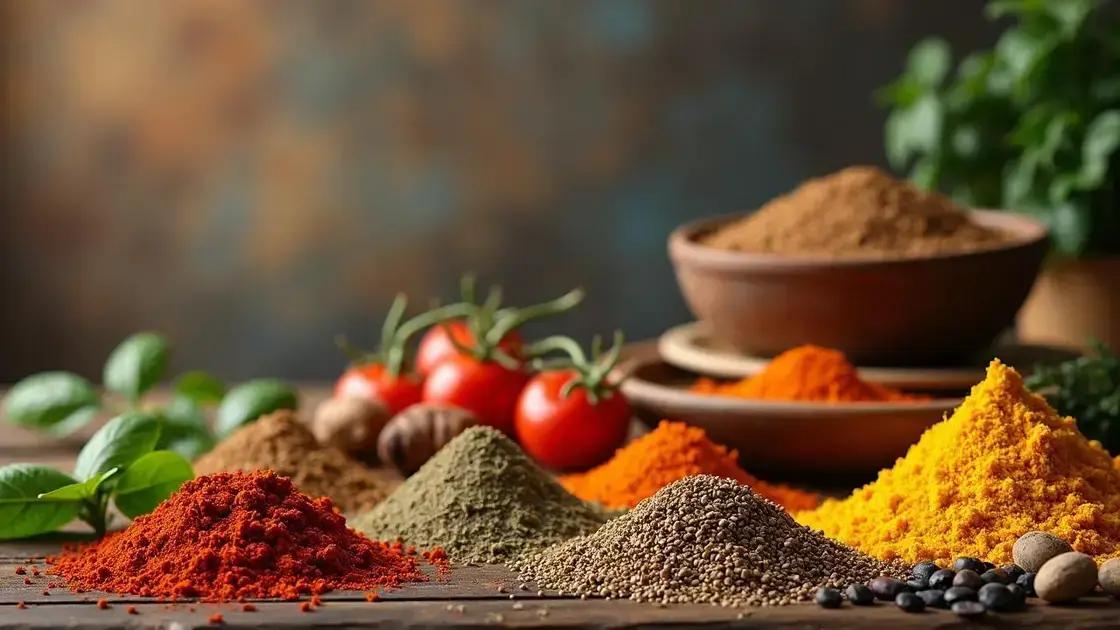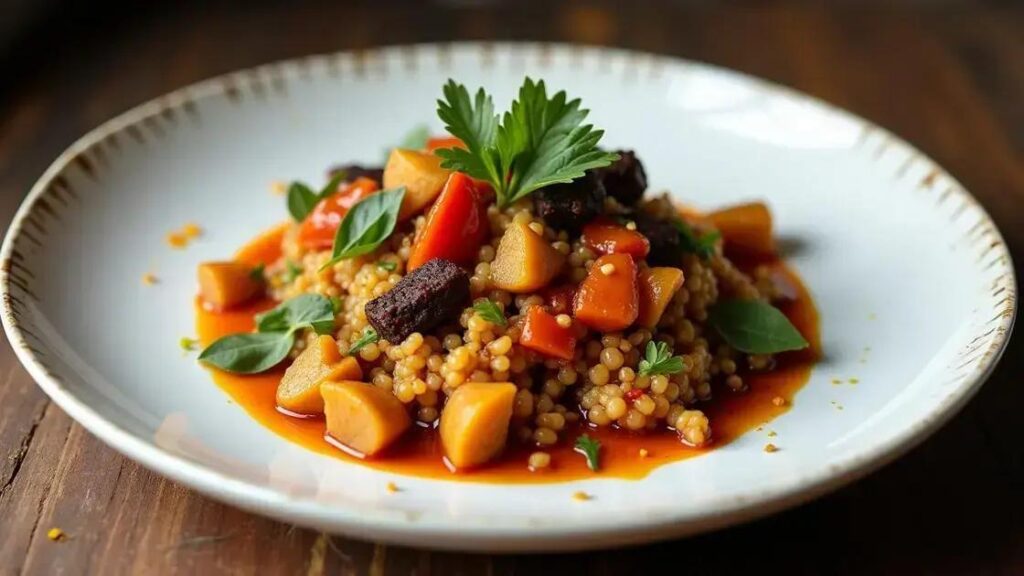Understanding how long it takes for the African recipe to work involves recognizing the importance of ingredient quality, cooking methods, and the need for patience in allowing flavors to develop. Incorporating tips to maximize results can further enhance the cooking experience, leading to authentic and delicious dishes.
How long does it take for the African recipe to work? This intriguing question has drawn the attention of many culinary enthusiasts and health-conscious individuals alike. African recipes are not just about flavor; they also promise various health benefits and unique flavors. In this article, we uncover the timelines associated with these recipes, factors that influence their results, and tips to maximize their effectiveness. Whether you’re a novice or a seasoned cook, understanding these recipes can elevate your cooking experience and wellness journey.
Understanding African Recipes

Understanding African Recipes can significantly enhance the cooking experience. These recipes often have deep cultural roots and are celebrated for their unique and vibrant flavors. Each African dish tells a story, reflecting the traditions and ingredients of its region.
Regional Diversity
Africa is incredibly diverse, with over 54 countries and numerous ethnic groups, each contributing to a rich tapestry of culinary traditions. For example, North Africa is known for its tagines and spicy harissa dishes, while West Africa is famous for dishes like jollof rice and egusi soup. Understanding these regional backgrounds can deepen your appreciation for the recipes.
Common Ingredients
Many African recipes rely on staple ingredients such as grains, legumes, root vegetables, and a variety of spices. Ingredients like millet, sorghum, yams, and plantains are frequently used. Spices such as coriander, cumin, and ginger add depth and character to the dishes.
Cooking Techniques
Cooking techniques may vary from one region to another. Methods like steaming, frying, and braising are common. For instance, traditional stews often simmer slowly to develop complex flavors, while grilling is popular in East Africa. Embracing these techniques can enhance the authenticity of your cooking.
Moreover, some recipes may call for specific herbs or spices believed to have medicinal properties, adding another layer of understanding to these dishes. By grasping the importance of the ingredients, techniques, and cultural significance, you can truly appreciate how long it takes for the African recipe to work and resonate with its history.
Factors Influencing Recipe Effectiveness

Factors Influencing Recipe Effectiveness play a crucial role in how well an African recipe impacts your cooking experience. Understanding these factors can help in achieving better results.
Ingredient Quality
The quality and freshness of the ingredients used can greatly affect the final dish. Fresh herbs, ripe vegetables, and premium grains can enhance flavors and textures, making the dish more enjoyable. Always choose local produce when possible for the best results.
Cooking Methods
Different cooking methods can change how the ingredients interact. For instance, slow-cooking might draw out flavors better than quick-frying. Taking the time to follow the recommended cooking methods will yield the best outcomes. Also, be mindful of temperatures and cooking times to avoid overcooking or undercooking your dish.
Proper Measurements
Following recipe measurements is vital for achieving balance in flavors. Too much of a spice or ingredient can overpower the dish, while too little may not deliver the intended taste. Using precise measurements ensures that the dish turns out as it should, allowing for the authentic taste associated with African cuisine.
Incorporating these factors into your cooking practice can significantly influence how long it takes for the African recipe to work effectively, leading to delicious meals that reflect the culture and heritage behind them.
Tips for Maximizing Results from African Recipes

Tips for Maximizing Results from African Recipes can help you achieve delicious and authentic meals. Here are some effective strategies to enhance your cooking experience.
Embrace Traditions
Many African recipes have traditional methods that make them special. Try to follow these methods closely, as they often play a key role in flavor development. For example, using clay pots for stews can add depth to the taste.
Experiment with Spices
Spices are crucial in African cooking. Don’t be afraid to experiment with different spice blends to find your perfect balance. Try adding spices gradually, tasting as you go, to avoid overpowering the dish.
Practice Patience
Many African recipes benefit from slow cooking. Allowing the flavors to meld together enhances the overall taste. Avoid rushing the process; give your food time to develop rich flavors.
Also, consider marinating meats overnight to boost flavor penetration. This practice is common in many African cuisines, providing tender and flavorful results. By using these tips, you can elevate the way African recipes work in your kitchen and lead to greater satisfaction with your meals.
In Summary: Embracing African Recipes
Exploring African recipes opens up a world of rich flavors and cultural traditions that can enhance your cooking skills. Understanding how long it takes for the African recipe to work involves recognizing the intricacies of ingredients, methods, and cultural significance.
By considering factors that influence recipe effectiveness, such as ingredient quality and cooking methods, you can achieve superior results in your dishes. Finally, applying tips to maximize results will lead you to create authentic meals that delight your palate and impress your guests.
Embrace the journey of cooking African recipes, and enjoy the delicious adventure!
FAQ – Frequently Asked Questions About African Recipes
How long does it take for the African recipe to work?
The time it takes for an African recipe to work can vary greatly, depending on the complexity of the dish, with some recipes needing hours to develop flavors.
What ingredients are essential for African recipes?
Common ingredients include grains, beans, root vegetables, and spices like cumin, coriander, and ginger, which enhance the flavor profile of dishes.
Are African recipes difficult to prepare?
While some African recipes may require specific techniques or longer cooking times, many are straightforward and can be prepared by beginners.
How can I maximize results when cooking African dishes?
To maximize results, use fresh ingredients, follow traditional cooking methods, and take your time to allow flavors to develop fully.
Can I substitute ingredients in African recipes?
Yes, you can substitute ingredients based on availability, but be mindful that this may alter the flavor and authenticity of the dish.
What are some popular African dishes to try?
Popular dishes include jollof rice, tagines, injera, bobotie, and egusi soup, each showcasing the rich diversity of African cuisine.













